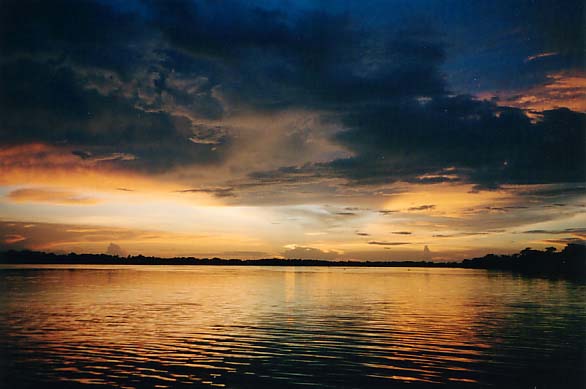I will be writing about the electoral system in Venezuela in the next months. I ask any of you with concrete information that may be interesting to send it to me.
This will become a reference post in this blog.
The Carter Center said Venezuela's elections were fair. After that the supporters of Chavez have been proclaiming time after time that is the case.
Is it?
Observers
Carter Center: what they claim to have done and seen in Venezuela can be read
here.
European Union: the European Union sent a lot of observers for the 2006 elections. They produced a lengthy report with criticisms towards the government and opposition, but nothing really major. The interesting thing is what we
find out about them by testimony of one of the observers (and it is a testimony that corresponds to what I have learnt via other sources)
Extremely partial foreign politicians sold to the general public as "representatives of the European Union": The government has also invited on several occasions European deputies who support Chavismo no matter what. You can see a couple of posts about that
here and
here. The way Chavismo announces those invitations, it looks as if those deputies were representing the whole parliament or country in which they worked or the EU as a whole and were not just the extreme left (and even a subset of the extreme left).
Paper trail
Chavez supporters in Venezuela and abroad say the Venezuelan system is better than the ones Germans and others have because "there is a paper trail"! Basically, unlike in those systems, you push a button and you get a copy of your vote intention, which you then must cast in a box. If - in principle - there is problem with the electronic data, people can go and count the paper ballots.
Well...not only have many people who oppose Chavez claimed the paper trails they got did not reflect their votes, but also these people:
- Hugo Chavez Frías father
- pro-Chavez governor Tarek Saab (here you can see a video where he destroys his paper trail and then goes to vote again, something that is forbidden by law and for which several non-pro-Chavez people went to jail)
- another Chavista, Aristóbulo Isturiz, declared his paper trail came out as "invalid"
Electoral Council's Failings
There are lots of things that are not working well with the CNE, the National Electoral Council, but here I will name just a few:
- It does not count votes of Venezuelans abroad for several years already. Why? The Venezuelan government and the CNE know the vast majority of Venezuelans abroad do not support Chávez's government. If you look at their official site here you will see they have not published the votes of Venezuelans abroad for 2007. If you check out here you will see they did not publish the results for the referendum of March 2009. Now the government has an additional reason not to publish those last results: Foreign minister Maduro had publicly declared that at least HALF OF ALL VENEZUELANS REGISTERED ABROAD actually signed a petition in support of Chávez's referendum. You can see Maduro's declarations here (in Spanish, Aporrea, pro-government site). That is a huge lie.
For further information, go to the Esdata site, which has very detailed information about the irregularities in the electoral process. A general document can be found
here. It is outdated. Things have got worse and we foresee gerrymandering big time shortly before next elections.
____________________________________Countries having strong discussions about the validity of voting machines:
They are going back to paper for the next elections.
Here you will find a site where the Dutch express the whole issues at hand with electronic voting. There is some data in
English and
German as well there.
Germany:Here you have also information about the German discussion (in German only)
Germany's Supreme Court recently declared (
here in its site, in German) that the use of computer machines for the Bundestag elections of 2005 was unconstitutional as voters could not control what they voted was what the machine counted. In Venezuela there is the paper trail, but this does not seem to work even for Chavez's dad (and one can imagine they will take special attention in programming that machine correctly)









